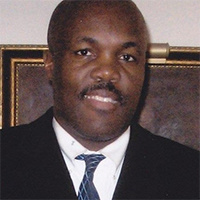Clarence Criminal Lawyer, New York
Sponsored Law Firm
-
 x
x

Click For More Info:
-
Law Office of Mark S. Guralnick
55 Madison Avenue 4th Floor Morristown, NJ 07960» view mapCriminal Defense Law Dedicated. Fearless. Successful.
Mark S. Guralnick and his legal team have helped clients throughout the USA and across the world by applying unparalleled dedication and hard work to each case.
800-399-8371
Derek Akiwumi
✓ VERIFIEDAccident & Injury, Criminal, Divorce & Family Law, Estate, Bankruptcy & Debt
Derek Akiwumi, representing clients throughout WNY, has a proven reputation for getting the results you need. From criminal defense, appeals, and pers... (more)
Karl Martin Myles
✓ VERIFIEDCriminal, DUI-DWI
My Web designer told me that I had to provide him with more information on myself to explain to people better who I am. Specifically he said for me to... (more)
Gary A. Joseph
Criminal, Misdemeanor, Personal Injury, Residential Real Estate
Status: In Good Standing
FREE CONSULTATION
CONTACTAmber Rose Poulos
Lawsuit & Dispute, Government, Criminal, Accident & Injury
Status: In Good Standing Licensed: 12 Years
Amber Rose Poulos
Lawsuit & Dispute, Government, Criminal, Accident & Injury
Status: In Good Standing Licensed: 12 Years
Andrew Simpson Tabashneck
Motor Vehicle, Family Law, Criminal, Securities Fraud
Status: In Good Standing Licensed: 8 Years
Ann Marie Nichols
Divorce, Divorce & Family Law, Criminal
Status: In Good Standing Licensed: 16 Years
 Mark Guralnick Morristown, NJ
Mark Guralnick Morristown, NJ AboutLaw Office of Mark S. Guralnick
AboutLaw Office of Mark S. Guralnick Practice AreasExpertise
Practice AreasExpertise


